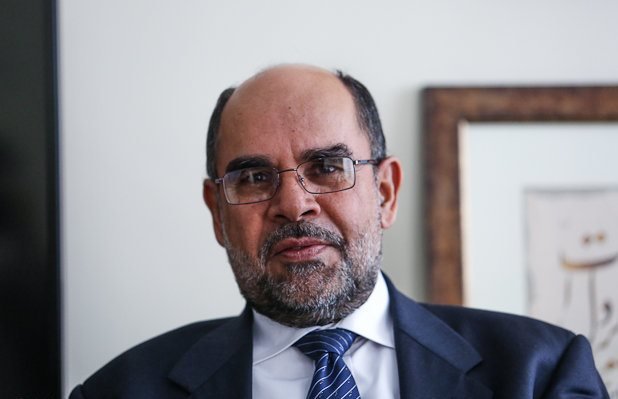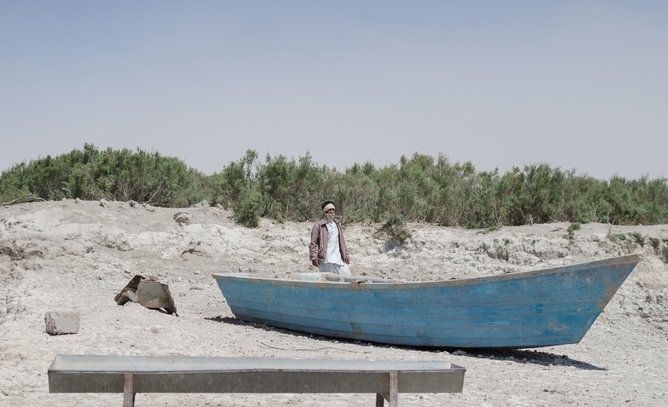Afghanistan, Iran join hands to preserve the Hamouns: envoy

TEHRAN — A festering disagreement over allocation of water from Helmand River is threatening Iran and Afghanistan relationship as both neighboring countries are suffering from drought, climate change, sand and dust storms and the lack of proper water management.
The Hamouns are transboundary wetlands on the Iran-Afghan border made up of three lakes: Hamoun-e Helmand, which is entirely in Iran, Hamoun-e Sabari on the border, and Hamoun-e Puzak, almost entirely inside Afghanistan. The three lakes are linked and fed by water from the Helmand River which starts in the Hindu Kush Mountains in Afghanistan.
According to the Atlantic Council (an American think tank in the field of international affairs) disputes over water between Iran and Afghanistan date to the 1870s when Afghanistan was under British control. Frederick Goldsmith, a British officer, drew the Iran-Afghan border along the main branch of the Helmand River.

In 1948, another attempt to resolve the dispute began in Washington. Accordingly on February 28, 1951, the Helmand River Delta Commission presented its report, recommending that Iran’s share of the Helmand waters amount to twenty-two cubic meters per second. Iran, however, rejected the report, asking for a larger share.
In 1973, the then Iranian prime minister, Amir Abbas Hoveida, and his Afghan counterpart Mohammad Musa Shafiq signed an accord that accepted the flow of water into Iran at twenty-two cubic meters per second with an option for Iran to purchase an additional four cubic meters per second in normal water years.

In return, Iran agreed to allow the ports of Bandar Abbas and Chabahar to be available to Afghanistan without preconditions. However, this agreement was neither ratified nor fully implemented due to the political developments in both countries including a 1973 coup in Afghanistan, the 1979 Iranian revolution, the Soviet occupation of Afghanistan that same year, and finally the rise of the Taliban in 1995.
In an exclusive interview with the Tehran Times, Afghanistan's Ambassador to Iran Nasir Ahmad Nour explained that Afghanistan has always adhered to the agreements stating the water right of the two countries and that four decades of conflicts and wars in the country have forced many farmers to leave their lands and no projects have got off the ground over these years.

All these times the water have been flowing into Iran and the fact that Hamoun is still dry has nothing to do with Afghanistan and Iran must look into the problem and find the reasons for the lake dryness inside the country, the ambassador said.
He further mentioned the establishment of five joint committees between the two countries out of which one is allocated to resolve water related issues in a “friendly ambiance”. The sessions would hopefully result in reaching long-term and binding agreements, he said.
The dried out Hamoun is causing troubles both for Iran and Afghanistan and even for the rest of the region, he noted, adding, “Most winds are westerly and as Afghanistan is located in the east we will be much more affected by the sand and dust storms.”

Ahmad Nour finally suggested that Iranian and Afghan experts can work out a solution to set things right or they can ask a third party, either a country or an international body, to settle down the matter.
Although without the 1973 agreement, the situation would have been much more complicated it is clear that both Iran and Afghanistan have proceeded with water related projects such as dam construction, digging wells and depleting groundwater resources and developing unsustainable agriculture regardless of its detrimental effects over the years which all resulted in escalating water crises in both regions.
The aforesaid joint committees formed between Iran and Afghanistan is a step towards optimal and sustainable water management which certainly benefits both regions. However, selfishness, shifting the responsibility and trying to pin all the blame on another nation would not solve any issues and the environment would surly suffer untold harms.
MQ/MG
Leave a Comment